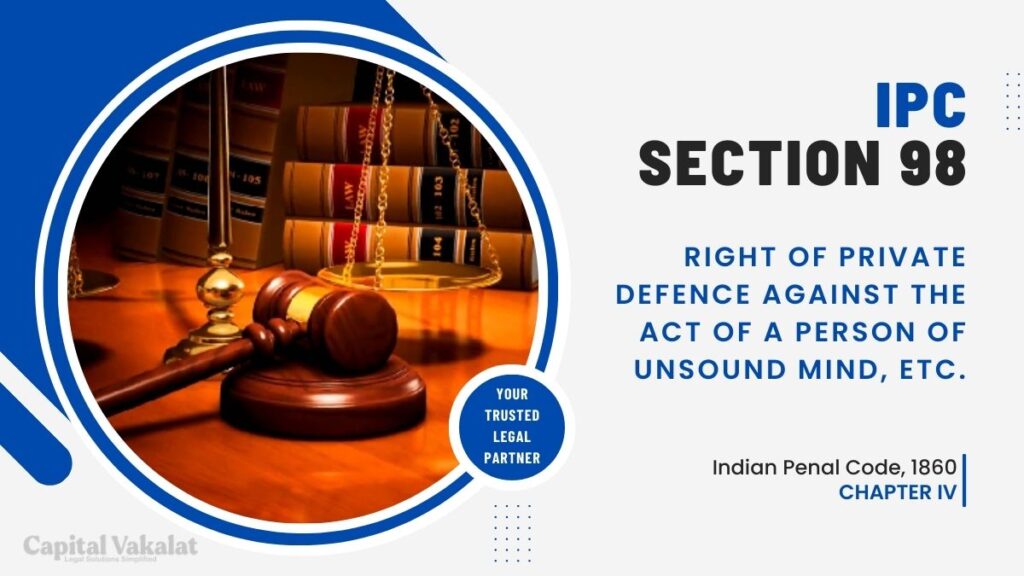In the realm of legal provisions, Section 98 of the Indian Penal Code (IPC) addresses a unique and intricate aspect of self-defense. It delves into the right of private defense when a person, due to unsound mind or any other reason, engages in activities that threaten the safety and well-being of others.

This article will provide a comprehensive understanding of Section 98 IPC, exploring its nuances, limitations, and practical implications.
Understanding the Foundation: Private Defense in IPC
Before delving into Section 98 IPC, it is crucial to grasp the broader concept of private defense as outlined in the Indian Penal Code. Private defense, often referred to as the right to self-defense, is a fundamental legal concept that allows an individual to protect themselves, their property, and the lives of others from harm or unlawful aggression. This right is not absolute but subject to certain conditions and limitations.
Section 98 IPC: Right of Private Defense against Unsound Minds
Section 98 IPC deals specifically with situations where a person, due to unsoundness of mind, intoxication, or any other similar reason, is incapable of understanding the consequences of their actions. In such cases, the law recognizes the need to balance the right of private defense with the protection of individuals who might not be fully responsible for their actions.
Conditions for Exercising Private Defense
To invoke the provisions of Section 98 IPC, certain conditions must be met:
- Immediate Threat: The threat posed by the person of unsound mind must be immediate and real, leaving no room for ambiguity.
- Reasonable Apprehension: The defender must have a reasonable apprehension of death or grievous harm as a result of the actions of the person in question.
- No Excessive Force: The force used in self-defense should be proportionate to the threat. Excessive force that leads to severe injury or death may not be justified.
Duty to Retreat
Unlike the general principle of private defense, Section 98 IPC does not require the defender to retreat if safe retreat is possible. This is due to the recognition that a person of unsound mind may not respond to the usual signals of retreat.
Protection of Property
The right of private defense under Section 98 IPC extends not only to the protection of one’s life but also to the protection of one’s property. However, the same conditions of reasonableness and proportionality apply.
Practical Implications
Section 98 IPC has significant practical implications, especially in cases where individuals with mental health issues or intoxication engage in aggressive behavior. It offers a legal framework for individuals to protect themselves and their property while considering the mental state of the aggressor.
Conclusion
In conclusion, Section 98 IPC addresses a crucial aspect of self-defense when dealing with individuals who are of unsound mind or incapable of understanding the consequences of their actions. It strikes a delicate balance between the right of private defense and the protection of those who might not be fully responsible for their actions.
FAQs
What if the defender uses excessive force against a person of unsound mind?
Using excessive force can lead to legal consequences, as the force used must be proportionate to the threat.
Does Section 98 IPC apply to the protection of property as well?
Yes, it extends to the protection of both life and property, but the use of force must be reasonable.
Is there a duty to retreat under Section 98 IPC?
No, there is no duty to retreat if safe retreat is possible, considering the mental state of the aggressor.
Can Section 98 IPC be invoked if the threat is not immediate but potential?
Section 98 IPC requires an immediate and real threat for its provisions to apply.